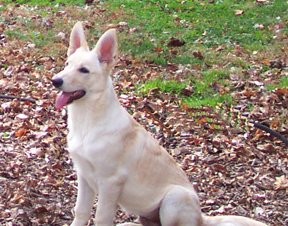
I've had an interest in search dogs, especially cadaver dogs, since about 1997, when I was researching Bones. (As I understand it, a new term for this is HRD dogs -- human remains detection dogs.) This led to the creation Bingle and Bool, SAR dogs in the Irene Kelly series.
I've met some wonderful individuals through my research for the books, many of whom were generous with their time. And some great dogs, too. (Such as Gustav, pictured here.) I count some of the human and canine searchers among my friends and I'm proud to know them.
The SAR folks spend lots of hours training and caring for their dogs, often go to great expense for specialized equipment and training, and many of them are frequently called out at all hours and work in conditions that range from tedious to dangerous. They do all this as volunteers.
Which is not to say that everyone who participates is a saint. (A fact that I make use of in Kidnapped. I asked some of the people I know in SAR to tell me about the traits of their nightmare encounters, and got great responses.)
Many people have heard of Sandra Anderson, who plead guilty in 2004 to planting evidence at a crime scene and making false statements to authorities. Her actions outraged other search dog handlers and raised questions about the use of canines in forensic work in other quarters.
And now, another case is making news.
When you see these stories, try not to forget the hard work of the hundreds of dog handlers and their canines, who have found lost children, stranded hikers, wandering Alzheimer's patients, trapped earthquake victims, hidden remains, and more.



3 comments:
Hi Jan,
I couldn't get the link to work to the second story, but I'd love to read it. Do you have a written link I could type in?
Thanks.
Louise
Hi Louse --
Thanks for letting me know.
It's
http://www.archaeology.org/online/features/dogs/index.html .
I'll try to fix it now!
Jan
Thanks, Jan. It's a fascinating article.
Louise
Post a Comment